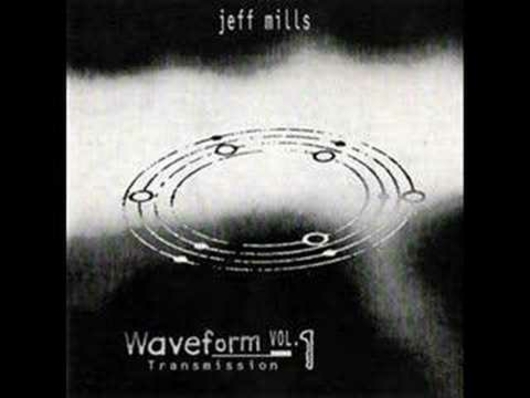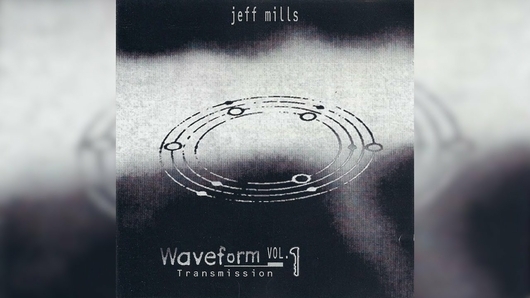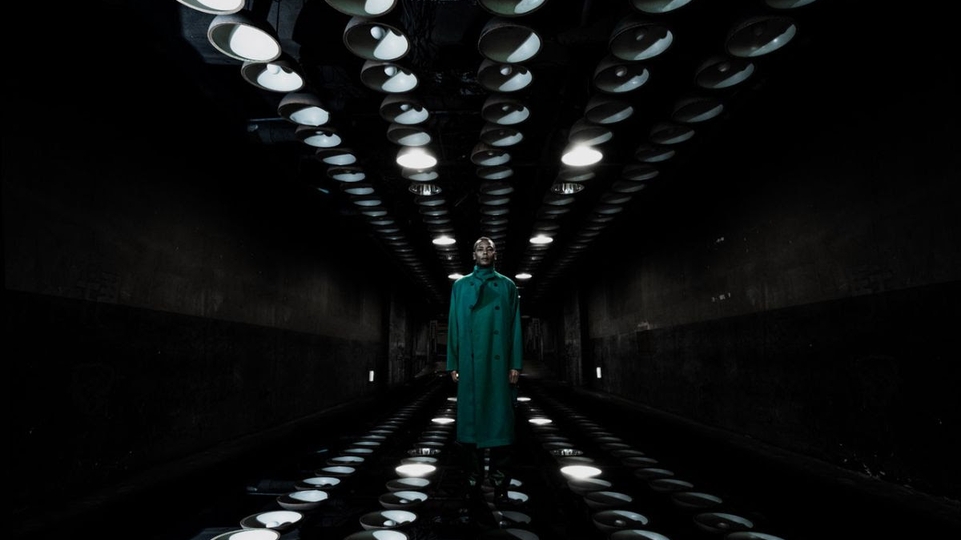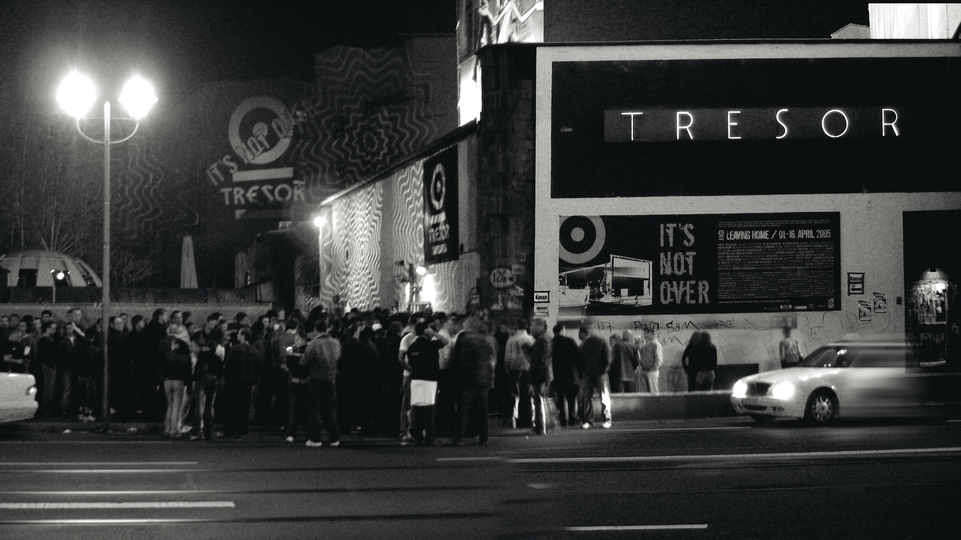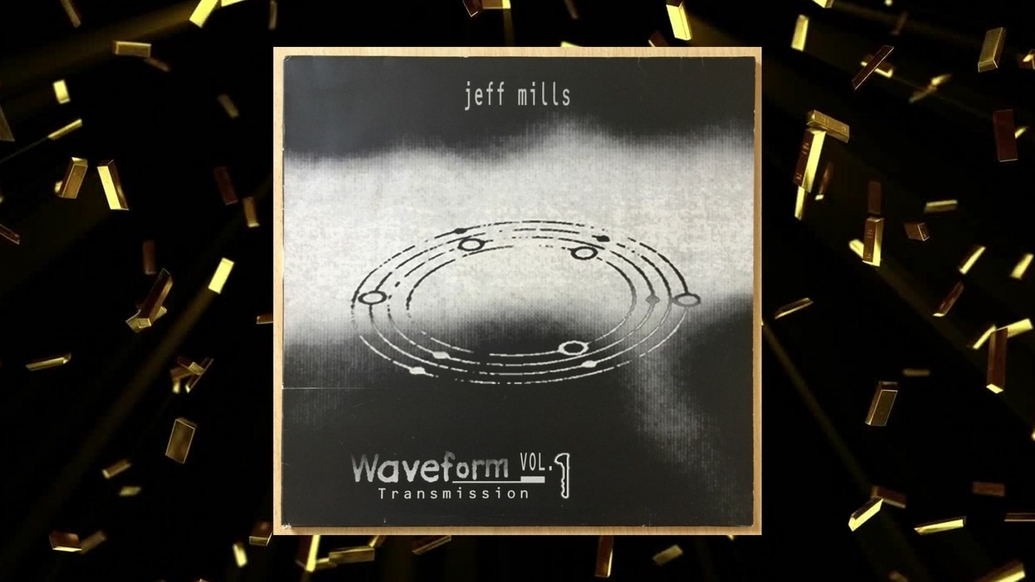
How Jeff Mills' 'Waveform Vol. 1' started a new era of techno
Released on Tresor in 1992, Jeff Mills' debut LP ‘Waveform Transmission Vol. 1’ is a record that stands for repetition and filth, forged from wrought steel and imbued with scuffed-up funk. Here, 30 years after its release, Ben Cardew takes a deep dive into the sound, origins and legacy of an album that birthed a new breed of techno
Listen to a lot of older techno today and it sounds rather restrained. Brilliant, yes, and futuristic too, yet largely soft and melodic compared to the techno of the 2020s. Not so Jeff Mills’ ‘Waveform Transmission Vol. 1’, a record that, along with Robert Hood’s ‘Minimal Nation’, birthed the modern techno sound of shifting loops and diamond-pointed beats.
‘Waveform Transmission Vol. 1’ is a record that stands for repetition and filth, and a record that cemented the Berlin-Detroit axis and birthed endless imitators, few of which had the sheer scuffed-up-and-nasty funk of the original. We may not condone his decision to play the recent Saudi-sponsored MDL Beast Soundstorm festival — but Mills is without a doubt one of the most important people in techno music, and ‘Waveform Transmission Vol. 1’ is him at his most Millsian.
Perhaps the most remarkable thing about ‘Waveform Transmission Vol. 1’ is that it arrived fully formed, the record’s new vision for techno music forged out of wrought steel and invisible ink. And yet there was really nothing in Mills’ musical past that suggested he had this kind of muscular vision inside him.
Mills’ long history with music started as an underage DJ, being sneaked into clubs in the early ’80s to play post-disco and funk. As the rise of hip-hop elevated the art of the DJ, Mills added beat juggling and scratching to his repertoire, leading to a gig with Detroit’s WJLB station as the Wizard — still a legendary name in Detroit. This, in turn, bled into production work, as Mills made original versions of hip-hop, then proto-techno tunes, to play on his show.
In the late 1980s, Mills hooked up with Anthony Srock to form the industrial techno duo Final Cut, a band inspired by the likes of Nitzer Ebb and Front 242. Mills left the group after a trip to Berlin in 1989 to play at a festival thrown by Interfisch Records (the label which would later birth Tresor Records), joining Mike Banks in legendary techno collective Underground Resistance. Mills made two records with UR — ‘Your Time Is Up’ and ‘Sonic EP’ — and two records with Mike Banks and Robert Hood as X-101 / X-102, his production skills improving all the time.
“As time went on and the equipment got easier to use, I learned how to enhance the sound,” Mills told the Red Bull Music Academy in 1998. “As I began to get more into recording and understand how a studio should work and how to get certain sounds, the sound got better. I began to learn a way to be able to manipulate the sound to get a certain feel, actually, over time.”
‘Phase 4,’ which opens the album, sets out its stall accordingly. The track may borrow from 3 Phase feat. Dr. Motte’s ‘Der Klang Der Familie’ (an early German techno classic), but ‘Phase 4’ feels like a new world has been breached. The record charges from pillar to post at a vicious 149bpm — a lot faster than most techno records of the time — with its bass drum hitting like a kick to the head, while a handful of ominous loops provide the record with ballast.
One of these is a fusible shriek that suggests the tortured contact of metal on metal; another billows into the atmosphere with the ominous dread of a black storm cloud. There is nothing melodic or “nice” in any way about ‘Phase 4’ — no concessions to home listening, chilling out or taking things easy. No wonder UK radio legend John Peel, a man of singular taste and a nose for quality, loved it.
If early techno records could trace their influences back to the famed combination of Kraftwerk and George Clinton, ‘Waveform Transmission Vol. 1’ sounded like neither, eschewing both acts’ considerable melodic gifts in favor of vulturous attack


‘Phase 4’ would set a standard for ‘Waveform Transmission Vol. 1’, with ‘Jerical’ and ‘Berlin,’ both on side one, following its format of speed-plus-loops-plus-dissonant fury, while ‘Late Night’, ‘DNA’ and ‘Man-Like’, on the marginally less ferocious side two, would recreate this mixture with a slightly more musical touch. ‘Late Night’, for example, has a two-note keyboard riff, while ‘ManLike’ has a rather winning melody that suggests the hot liquid squelch of a lava lamp. If early techno records could trace their influences back to the famed combination of Kraftwerk and George Clinton, ‘Waveform Transmission Vol. 1’ sounded like neither, eschewing both acts’ considerable melodic gifts in favour of vulturous attack.
That perhaps makes ‘Waveform Transmission Vol. 1’ sound more like a work of endurance than a record to be enjoyed. But Mills, who once studied jazz drumming and played a broad range of music on his WJLB shows, brings a funky edge to his loops that his imitators could never quite grasp. Listen again to that shrieking loop on ‘Phase 4’: it is ferocious, but surprisingly funked-up, the kind of cadence that could underpin a disco song or a hip-hop track if played out on a bass guitar. On ‘Berlin’, meanwhile, the song’s two loops sound like they are playing out a kind of rhythmical mating dance, waving their sonic plumage at each other in elaborate patterns of call and response.
The sounds on ‘Waveform Transmission Vol. 1’ are constantly changing, too. The album may be based on repetition and on loops, but Mills never does quite the same thing twice, running each of his sounds through a baffling array of filters and effects that keep the music in a state of constant evolution — each change like a new jag of adrenaline. Indeed, the eight tracks on ‘Waveform Transmission Vol. 1’ feel like the perfect accompaniment to Mills’ devastating DJ sets, where he thrashes through records, creating ever evolving patterns of loops that can’t fail to make the heart beat faster.
The album’s ‘Changes Of Life’ is a classic of Mills’ DJ sets, its ravey keyboard riff (sampled from Richie Havens’ ‘Going Back To My Roots’) laid over pummeling beats to create a real-life energy flash that is utterly irresistible. The song also gives the lie to the lazy idea that Jeff Mills is a rather dour figure, its borderline cheesy riff an irresistible invitation to smile from a producer who proves that serious doesn’t have to mean surly. The album’s other outlier is ‘The Hacker,’ which dispenses with the 4/4 bass drum thud that dominates the rest of the album in favour of a frantic mesh of pulses, the song suggesting the kick-drum free experiments of Barker’s ‘Utility’ album, albeit some 28 years earlier.
Mills described ‘Waveform Transmission’ as “an artistic movement to address the convergence of the old and the new. A concept for translating feelings that were too difficult or not possible to relay in words or symbols
‘Changes Of Life’ is also a brilliant example of how well-produced ‘Waveform Transmission Vol. 1’ is, the keyboard riff leaping off the vinyl like static shocks, and the drums punching with the fury of a boxed kangaroo. Mills’ production ensures that the music on ‘Waveform Transmission Vol. 1’ is overwhelmingly solid, a work of mass, density, and drive, even on a track as seemingly carefree as ‘Changes Of Life’. It is no surprise that ‘Waveform Transmission Vol. 1’ proved a massive hit with DJs: The record’s eight tracks practically beg to be played out on the dancefloor, their sheer sonic heft ensuring that they would detonate sets from Stockholm to Stockton.
So potent was the record for DJs, in fact, that its whole underlying concept — Mills described ‘Waveform Transmission’ as “an artistic movement to address the convergence of the old and the new. A concept for translating feelings that were too difficult or not possible to relay in words or symbols” — was largely overlooked.
“I’m not sure if this initiative was clearly recognized, as most DJs at that time of its first release were just looking for something to play,” Mills told Fact magazine. “But the concept was always there.” Nonetheless, Mills and Robert Hood would expand on this concept on Hood’s ‘Waveform Transmission Vol. 2,’ released in 1993, and Mills’ brilliant ‘Waveform Transmission Vol. 3,’ released in 1994.
In the end, ‘Waveform Transmission Vol. 1’ wasn’t just the sound of techno in 1992 — it was the sound of techno from 1992 onwards, as artists and DJs like Surgeon, Adam Beyer, Ben Sims, Amelie Lens, Carl Cox, and Charlotte de Witte drew inspiration from Mills’ sound. You could, perhaps, even lay some of the blame for business techno at Mills’ door, as producers and DJs with none of Mills’ highly finessed ear for funk turned his loop-based sound into an excuse for black-T-shirted boredom.
But this should not, and cannot, be the legacy of a record as brilliantly fidgety and forward-looking as ‘Waveform Transmission Vol. 1’. This was the moment when techno turned its back on the past and accelerated into the future, a record with fun, funk, and dark functionality.
